Charles Waldemar
Argenteum Astrum
Gender Fantasies
Occult Cultural Pessimism
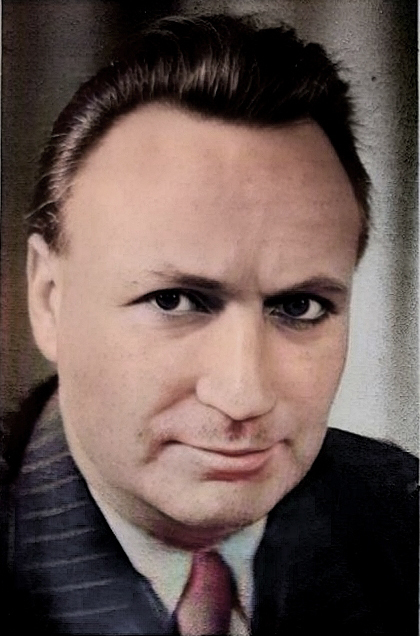
[Colored with AI]
|
Charles Waldemar (1912, Zurich) stands as an exemplary figure of postwar esotericism: an author, mystagogue, and businessman who fused occult teachings, erotically-tinged pathological worldviews, and a brand of folksy cultural pessimism into a system that functioned equally well as spiritual guidance and commercial enterprise.
Waldemar on October 12th 1955 made his first contact with "Frater" [sic] Anita Borgert from the Ordo Templi Orientis in Stein/Appenzell, using his "name in the World of Maya". He owned some rare Crowley manuscripts, over which he expressed his enthusiasm. Without being asked, he promptly offers instruction in “Love without coitus troubles”: In the evening before falling asleep: “Love is in me and around me. It fills my being with purity and joy.” By this he presumably means asceticism — or at any rate some variety of sex without ejaculation. 
[Collage] He signed at least one of his letters as a 5°=6° ... 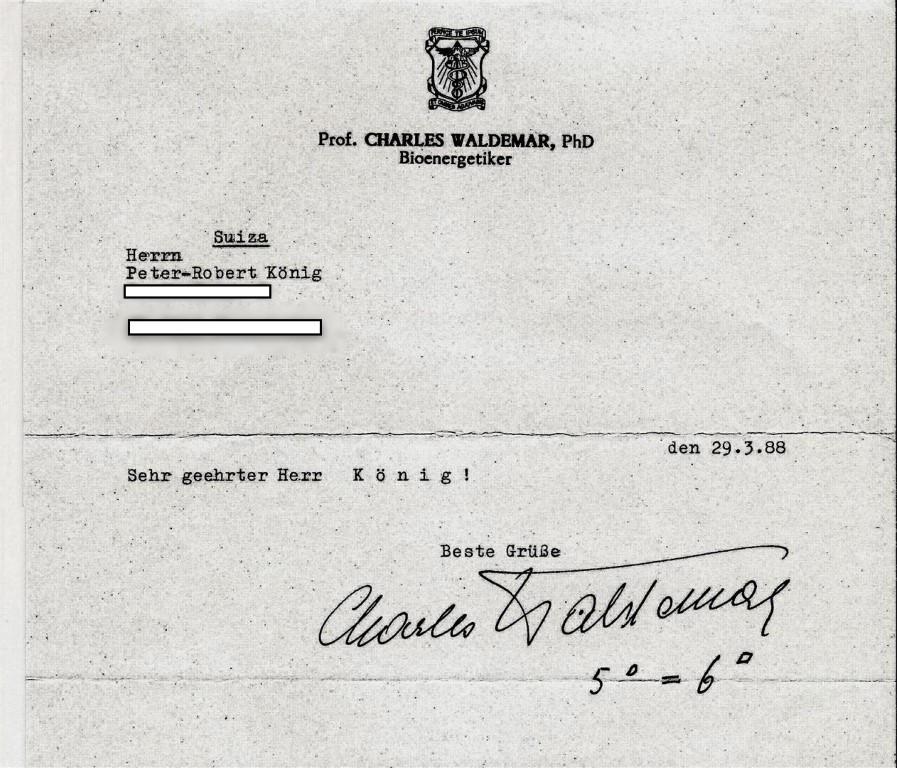
[Collage] ... and wrote books containing his formulæ "for love without the worry of coitus", as well as for self–confidence, potency, attracting love, and yoga. Waldemar's Electro–Acupuncture Apparatus, Gold–Plated Back–rollers, Sunproof Sheets, Oxygen-Ionising Equipment, and Foot–Reflexers were all available for purchase at this time. 
It is striking that Waldemar never droped the name Aleister Crowley in his books, although he extensively dealt with the individual practices of sexual magic, even quoted Crowley's Liber AL without mentioning the author, and referred to the thelemic gods Nuit and Hadit [e.g in 'Magie der Geschlechter', 1. edition, Munich 1958, 435]. Waldemar’s works steam from erotic themes, such as: Die psycho–physische Problematik der Geschlechter, Sexual–Kult, Minnedienst, Mittelalterliche Sexual–Ethik, Sublimierte Geschlechtskraft, Fetischismus, Okkulter Liebeszauber, Dämonie des Geschlechtstriebes, Sexuelle Besessenheit, Hexenwahn und Satanismus, Körper–Verklärung, Das heilende Fluidum der Frau, Der Austausch magnetischer Kräfte zwischen den Ehepartnern, Sexual–Magie in der glückhaften Ehe, Magisch–bewußte Zeugung, Okkulter Liebeszauber, Sexuelle Besessenheit und dämonische Praktiken, Jungwärts durch Sexual–Magie... [Chapter headings from 'Magie der Geschlechter', Munich 1958, compiled from several editions.] Perversion der Nymphen, Die Sadistin und der 'Schwache Mann', Pathologie der Sklavin, Buhlschaft mit dem Teufel, Vampire, Das Sündenweib und das Weltgericht, Hysterie und Pubertät, Sexual–Medien, Das Weib in der Ekstase, Die Sexualverbrecherin, Gorgonen und Erynnien, Das Rätsel der Lesbischen Liebe, Hypnose und Erotik, Die Sexualautomation der Frau und ihre Überwindung... [Chapter headings from 'Dämonie der Erotik', Wiesbaden 1967.] Charles Waldemar: ‘Magie der Geschlechter – Eine neue Sittengeschichte’, Munich 1958 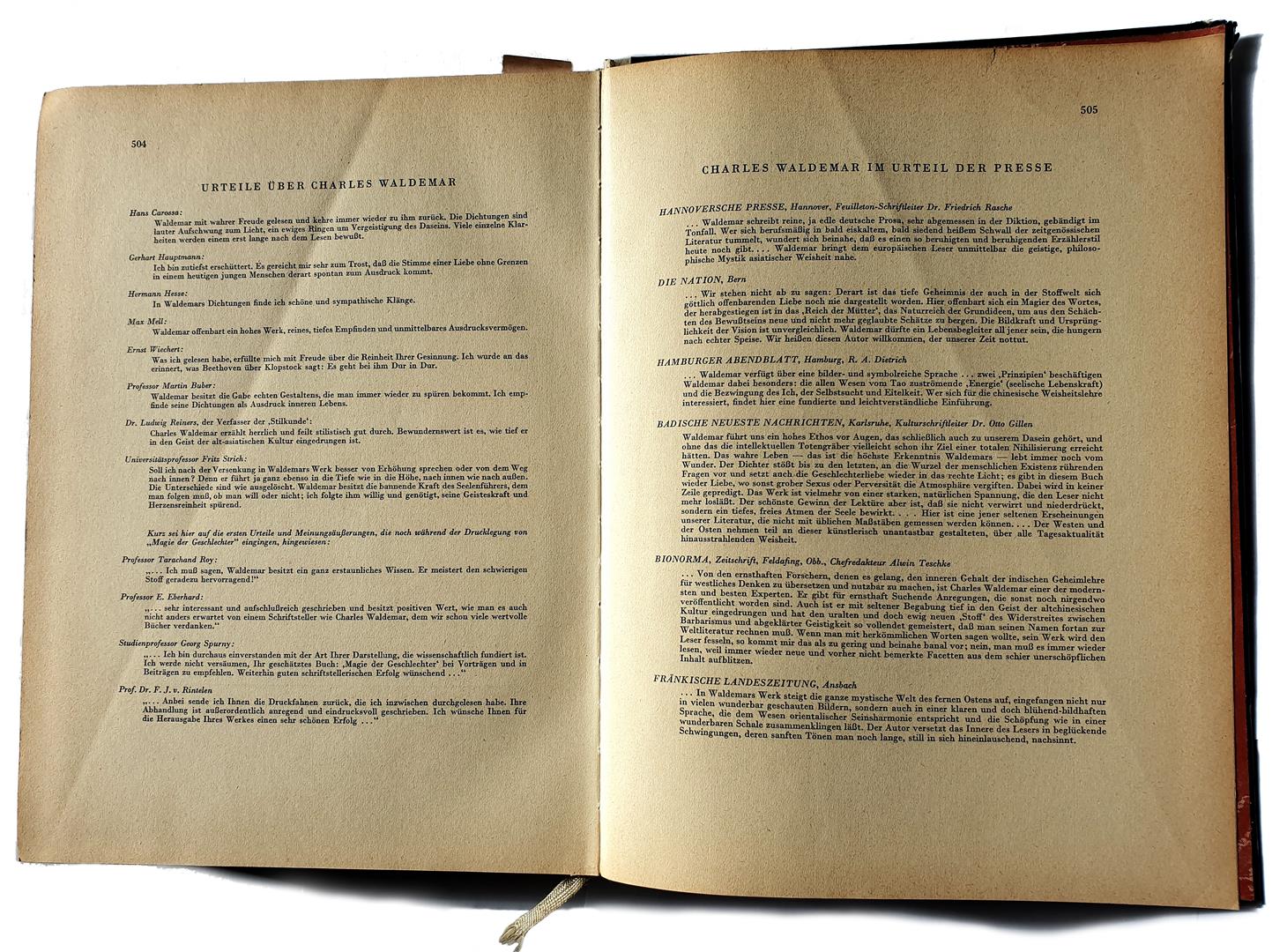
Judgment of the press [excerpt] Charles Waldemar: 'Dämonie der Erotik : eine Psychopathologie der Frau', Wiesbaden, 1967 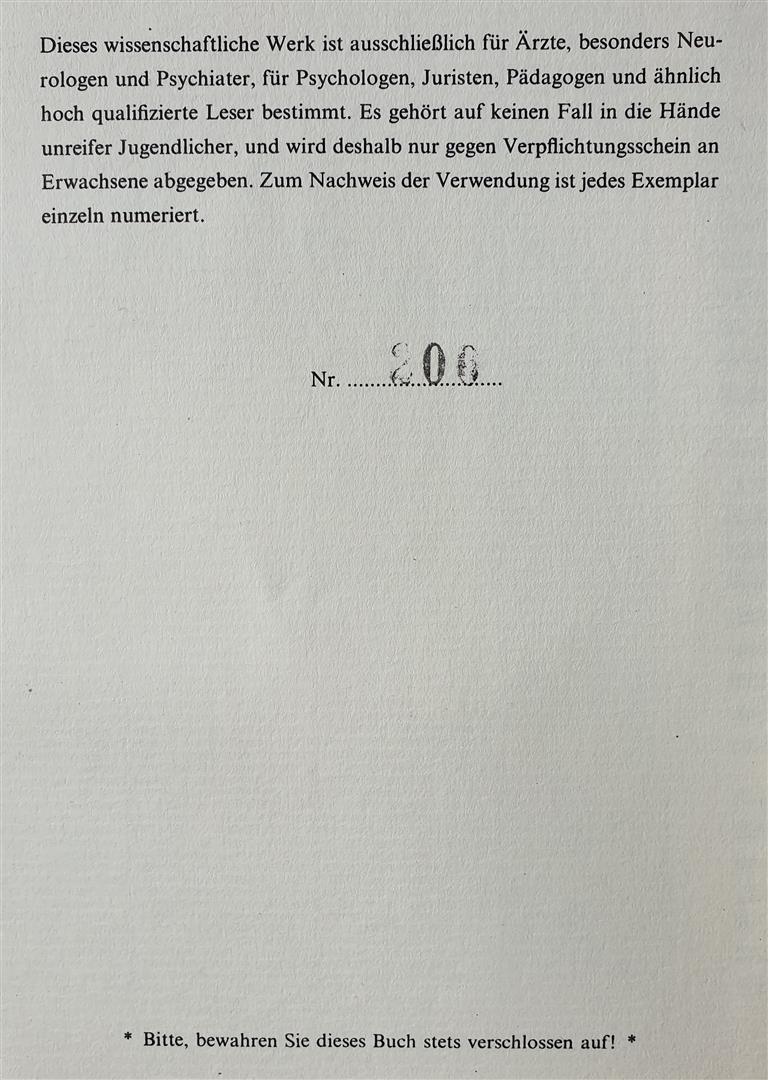
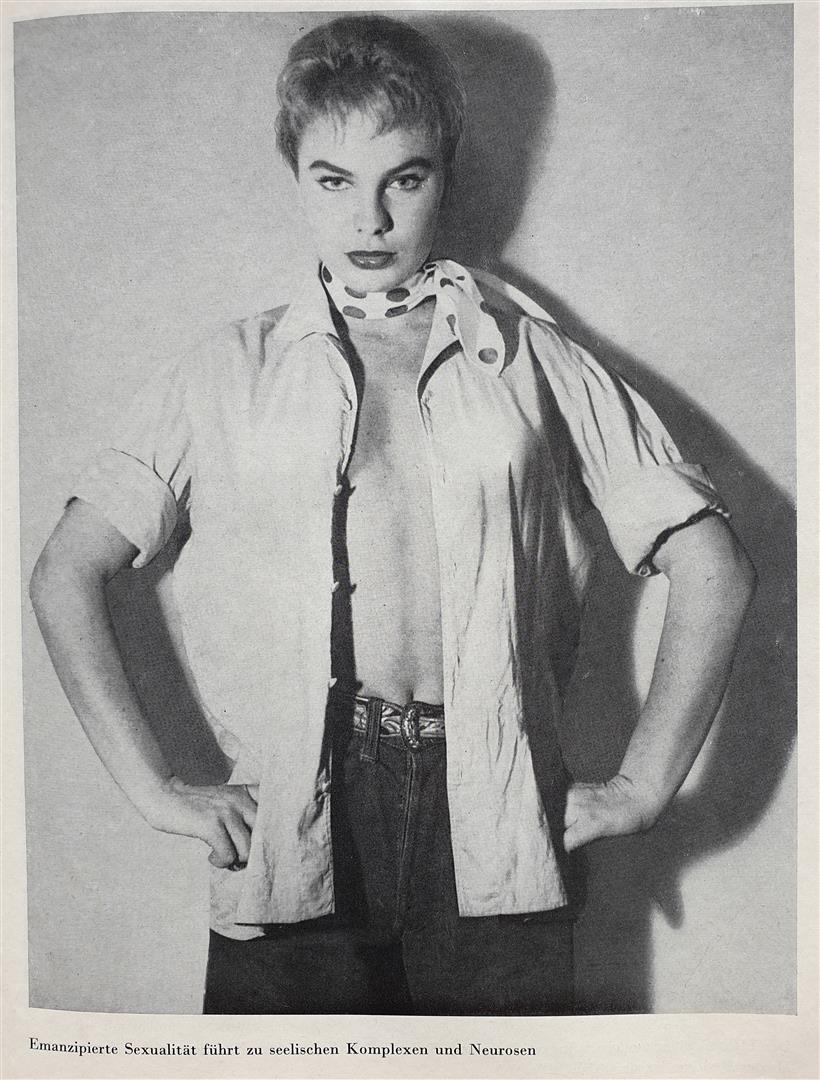
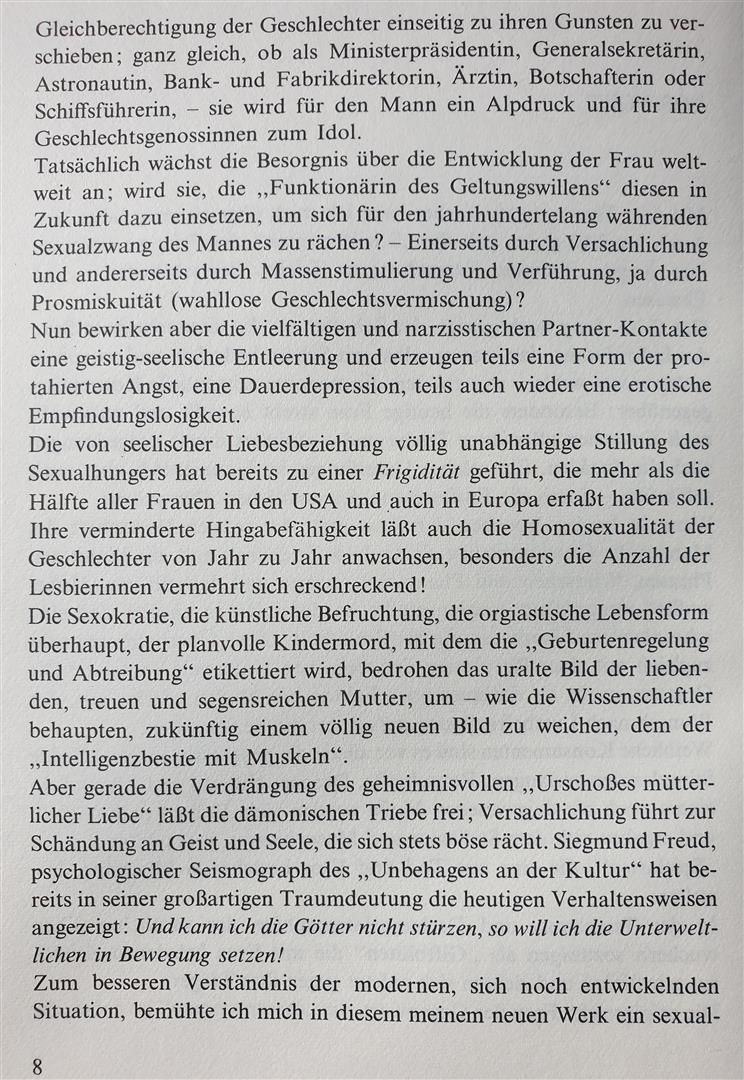
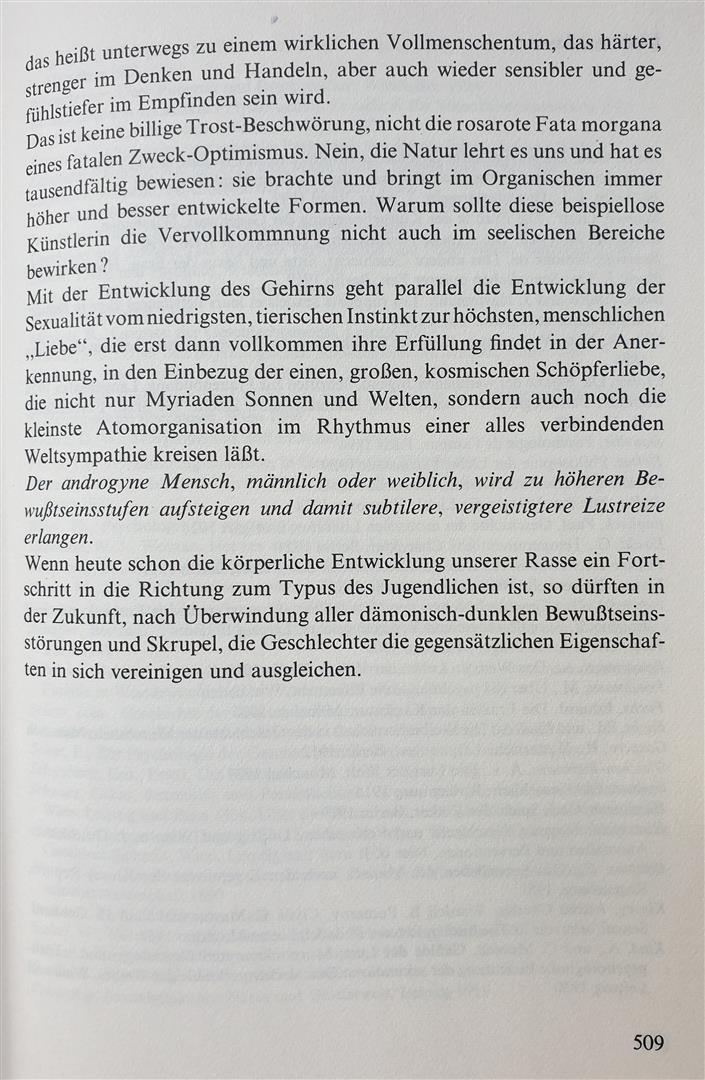
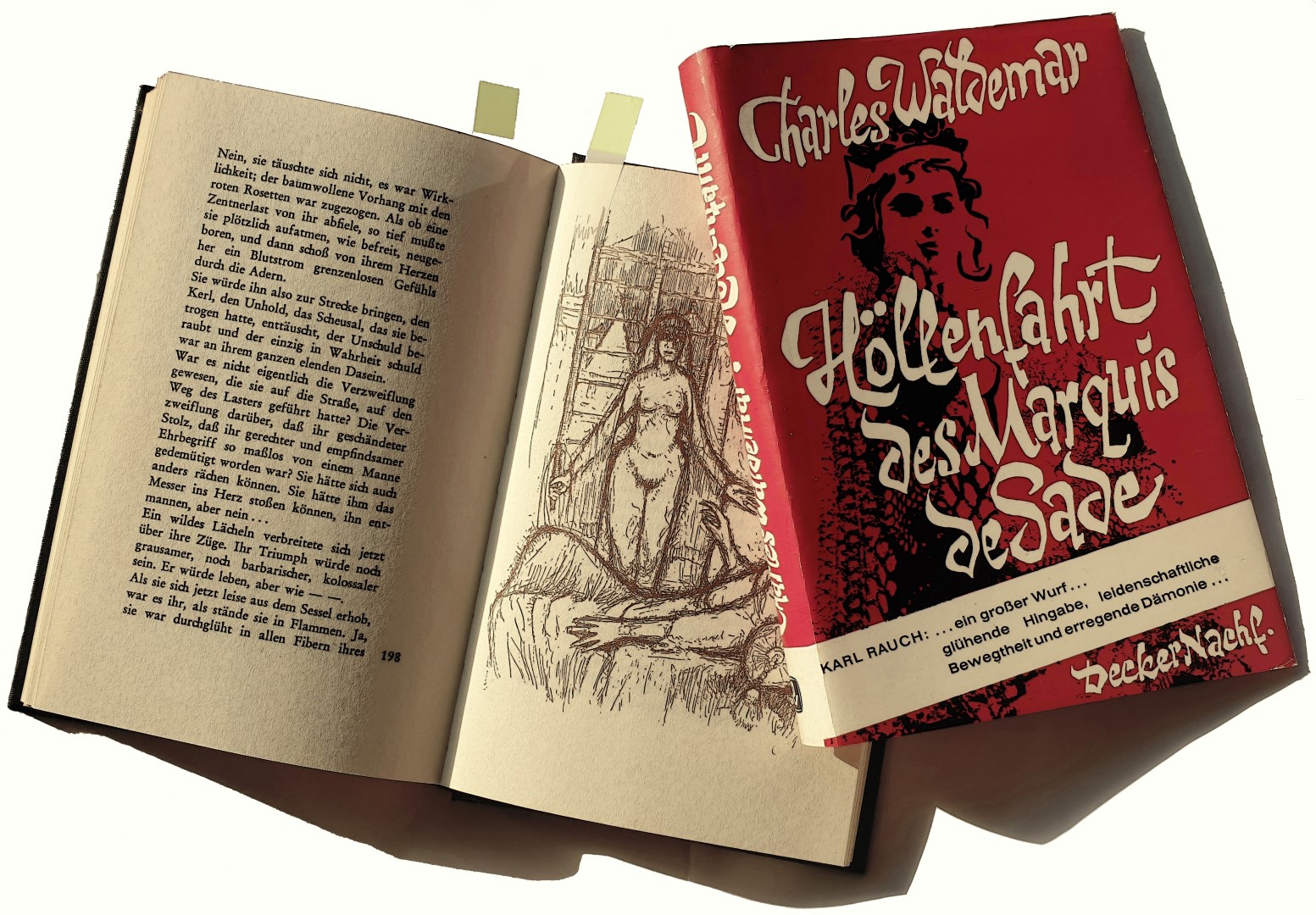
Charles Waldemar, Höllenfahrt des Marquis deSade, Stuttgart 1963 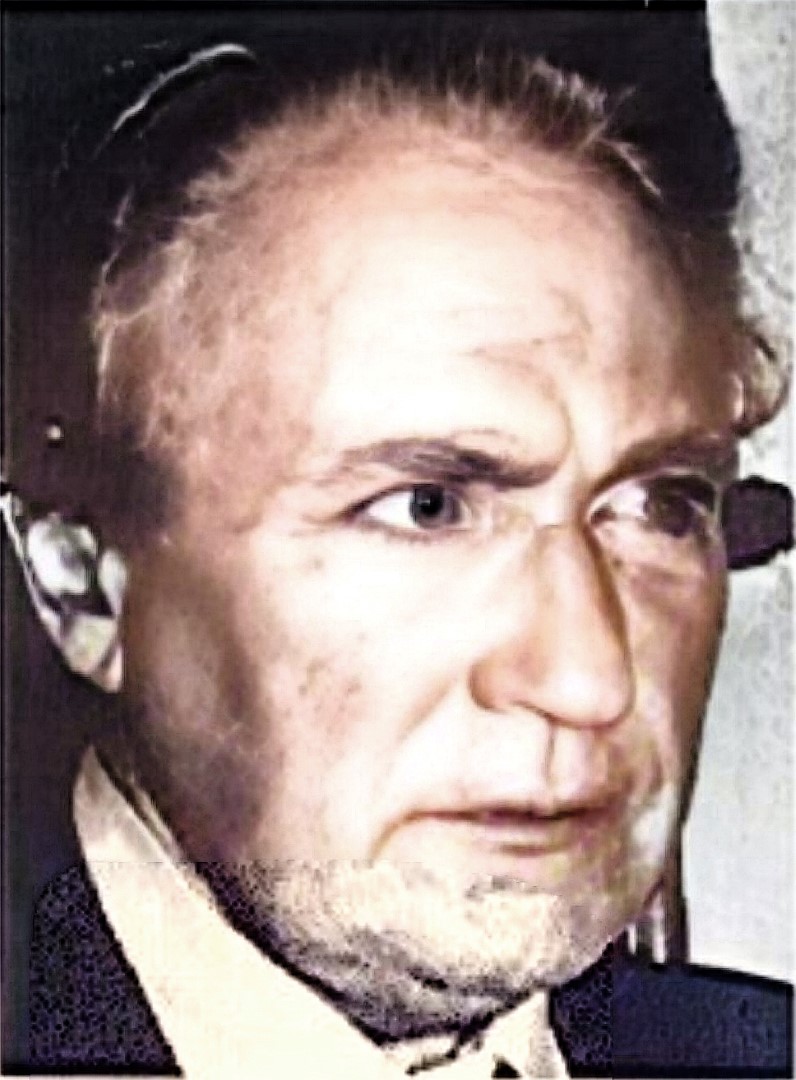
Sexual Magic: Asceticism, Sublimation, and Magical DisciplineWaldemar depicts “gender equality” as a looming threat, casting the modern woman as a nightmare for men and an idol for her female peers. Women assuming rôles as prime ministers or astronauts strike him as anomalies that displace the age-old ideal of the loving, maternal woman. He envisions a dystopian future in which women, at long last, take revenge for centuries of “male sexual compulsion” — by unleashing promiscuity, objectification, and mass suggestion upon the unsuspecting world. Waldemar diagnoses what he sees as the soulless sexuality of modernity: leading inevitably to frigidity, depression, “narcissistic partnerships”, and a rise in homosexuality (particularly among women, which he finds “frightening”). “Sexocracy”, artificial insemination, abortion, and “premeditated child murder” (as he styles birth control) threaten the sacred image of the “faithful and blessed mother”. Instead, he foresees a world where the maternal ideal is supplanted by the “intelligent brute with muscles”. Cosmic Synthesis as Salvational VisionThe development of the brain and sexuality should elevate humankind from base animal instinct to the “highest, human love”. The “androgynous human being” will rise to higher states of consciousness, spiritualize lust, and reconcile the opposites of gender. He dreams of a future “whole human being” who will be “harsher, stricter” in thought, yet also more sensitive and profound in feeling. The vision is a curious mixture of cosmic love doctrine, atomic world-sympathy, and occult gender utopia. Crowley Without Crowley, Paracelsus as Star WitnessThe Business of MagicConclusionHe merges occult asceticism, magical discipline, and gender utopia with commercial acumen, transforming his teachings into products and guides. In his work, one hears the echo of Paracelsus’s dread of “corrupted semen”, as well as Crowley’s sexual magic — the latter discreetly disguised to project an air of original genius. His vision: a spiritualized, androgynous humanity that, after overcoming its “demonic drives”, will dissolve into cosmic love and gender reconciliation. An esoteric utopia — with a distinct aftertaste of sexual repression and antimodern resentment. 
[AI-generated Image] Charles Waldemar had, according to Oscar R. Schlag, published an authoritative book on cults under the pseudonym Gerhard Zacharias. 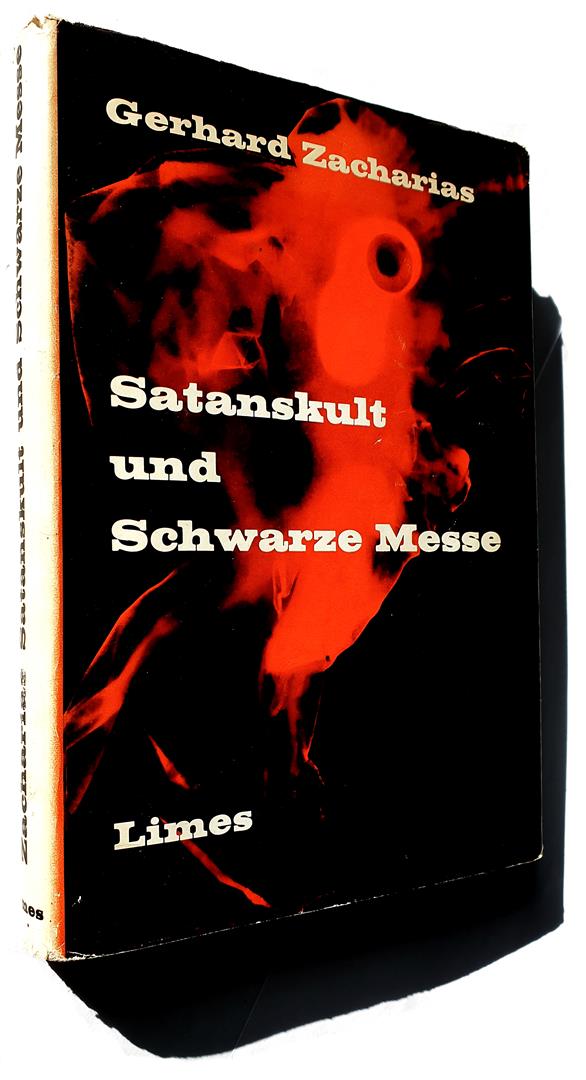
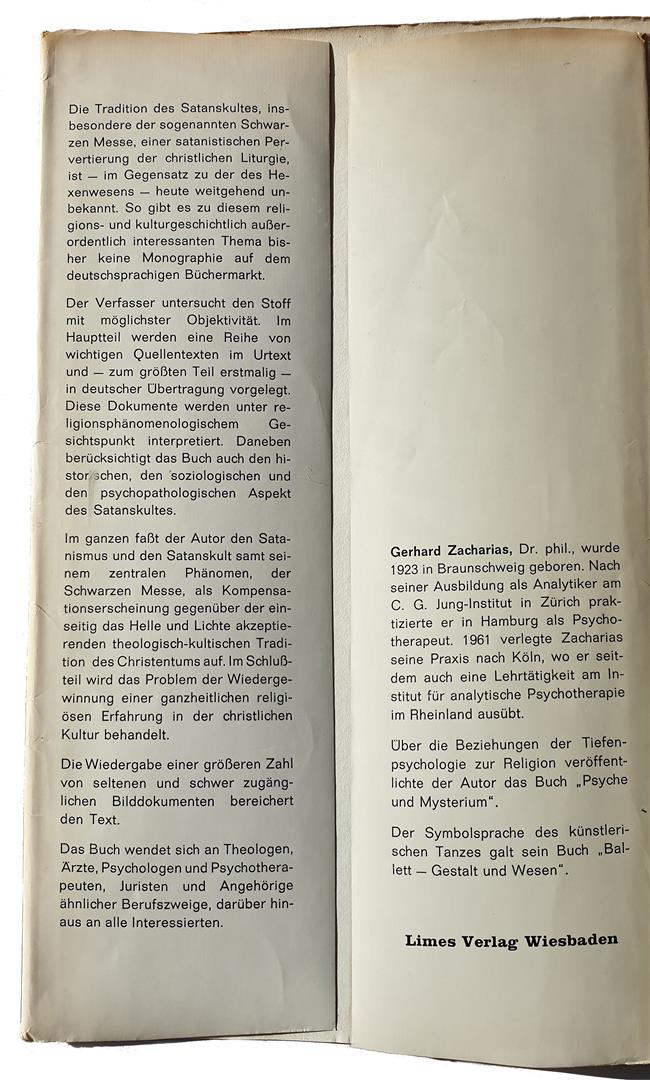
Context: Frederic / Friedrich Mellinger. Charles Waldemar quoted in: English: The Creative Power. Traduction française: Le pouvoir créateur. По русски: Творческая Сила. |
Click here to go back to where you came from or use this Java Navigation Bar:
|
|
|